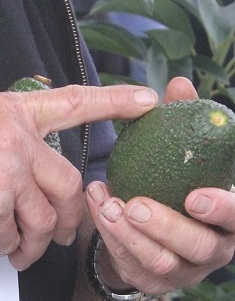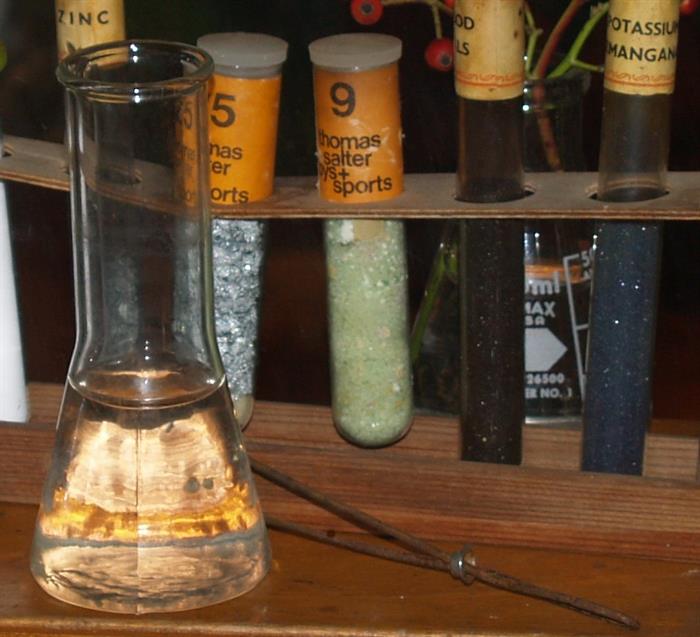Learn more about Plant Biochemistry

This course develops a deeper understanding of how plants grow, and in doing so, has valuable and practical benefits for horticulturists, farmers, plant scientists or anyone involved in growing plants.
Lessons cover gycolysis, electron transport, oxidative phosphorylation, carbohydrate metabolism, lipid metabolism, photosynthesis, nucleotide metabolism, enzymes, reproductive processes, hormones and more.
Nominal Duration: 100 hours
PREREQUISITE: Biochemistry I and II or equivalent knowledge.
COURSE AIMS
- Explain the interaction between the various biochemical processes within the plant cell
- Explain the process of glycolysis.
- Describe the transport mechanism of bio-chemicals through plant membranes.
- Explain the processes of electron transfer and oxidative phosphorylation, and their importance to energy regulation in plants.
- Explain the structure and metabolism of carbohydrates
- Explain the metabolism of lipids.
- Explain the processes of photosynthesis and the role of the light and dark reactions of photosynthesis in the growth of plants.
- Explain biochemical nucleotide metabolism.
- Explain enzyme reactions and catalysis in biochemistry.
- Explain metabolic processes relevant to reproduction in plants.
- Explain other biochemical processes including biochemical communication through hormones.
CONTENTS
There are eleven lessons in this module as follows:
1. Introduction - Introduction to Metablism, Energy Transfer within the Cell
2. Glycolysis- ATP, Glycolysis, Pentose Phosphate Pathway
3. Movement Through Membranes - Lipids and Fats, Membranes, Kinetics and Mechanisms of Transport, Ionophores, Aquaporins.
4. Electron Transport and Oxidative Phosphorylation - Mitochondria, Electron Transport, Oxidative Phosphorylation, Citric Acid Cycle, Controls of ATP Production
5. Sugar and Polysaccharide Metabolism - Monosaccharides, Disaccharides, Polysaccharides, Sucrose, Starches, Starch Biosynthesis, Carbohydrate Metabolism, Gluconeogenesis, Cell Wall
6. Lipid Metabolism - Lipids, Fatty Acid Biosynthesis, Glycerolipid and Phospholipid Formation, TAG Formation, Fatty Acid Oxidation, Wound Sealing
7. Photosynthesis- Chloroplasts, Light Reactions, Dark Reactions, Photorespiration, CAM
8. Nucleotide Metabolism - Nucleotides, Nitrogen Fixation, Assimilation of Ammonia into Amino Acids, Formation of Deoxyribonucleotides, Nucleotide Degradation.
9. Enzyme Activity - Enzyme Classification, Kinetics, Regulation
10. Reproductive Processes in Plants - Sexual and Asexual Reproduction, Gene Expression, RNA and Protein Synthesis, Eukaryotic DNA Replication
11. Other Processes - Hormones, Growth Regulators, Other Hormones, Use of Plant Hormones in Horticulture.

Biochemistry is Dynamic.
Chemicals are what makes up the living tissue of the plant; and those individual chemicals are constantly changing. This process of continual change is what we call metabolism or metabolic change.
A plant's metabolism constantly builds new chemicals and changes existing chemicals into different ones. Through these dynamic changes, the plant captures and uses energy; discards bits that are not required and captures new chemicals that are needed.
It's all a very complex web of activity; which no one fully understands. Over time science continues to learn more and more; and with an ever increasing understanding of plant biochemistry, we are continuing to find more and more practical applications to help us grow and utilize plants, for the overall benefit of mankind, the environment and all living things.
Why Do Chemical Reactions Happen at All
Chemical reactions would not occur unless something stimulated to occur. Often it is an enzyme that triggers the process.
Enzyme catalysed reactions
Many reactions in biochemistry can not proceed without the assistance of enzymes, which greatly reduce the energy required for the reaction to proceed. Enzymes are given a terminology depending on the type of reaction they catalyse. Enzymes can be broadly categorised based on the type of reaction they catalyse:
- Ligase (reactions joining biomolecules together)
- Oxidoreductase (oxidation/reduction reactions)
- Transferase (transfer functional groups between molecules)
- Isomerases (reactions where molecules undergo structural changes)
- Hydrolases (reacts where the addition of water splits a molecule into smaller molecules)
- Lyases (reactions that break molecular bonds, by methods other than hydrolysis or oxidation)
Coenzymes
Also known as co-factors, these are the small ions and molecules that interact with enzymes to increase their efficiency. There are three main classes of coenzymes:
- Metal Ions
- Organic Molecules
- Prosthetic Groups (permanently associated with the enzyme by strong molecular bonds)
Through this course, you have an opportunity to expand your understanding and appreciation for how plants grow; how crops become productive, and much more.
WHAT NEXT?
Register to Study - Go to “It’s Easy to Enrol” box at the top of the page and you can enrol now.
or
Get Advice – Email us at info@acsedu.co.uk OR
Use our FREE COUNSELLING SERVICE to contact a tutor
CLICK TO CONTACT US